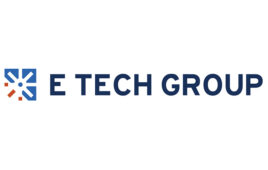CVRx CEO Nadim Yared has emerged as a fearless, outspoken leader in medtech.

Nadim Yared, CEO of CVRx
Throughout his career, Nadim Yared — the CEO of surging neurostimulation company CVRx — has pushed to assume new responsibilities and duties. However, during one moment in 2006, Yared adamantly refused to discuss leaving Medtronic to become CEO of the Minneapolis area company.
The executive recruiter representing the startup’s investors refused to take no for an answer. “Nadim, I know,” Yared recalls him shouting over the cell phone. “Every single CEO say it’s not the time. But let me tell you….”
Yared cut him off. “Trust me, this is not the time.”
Yared’s unusual reluctance didn’t come from within. At the time of the call, he’d been standing knee deep in ocean water. His 3-year-old daughter sat on his shoulders. Two helicopters circled above, and several Zodiac rescue boats buzzed about, carrying the U.S. Marines who had just pulled his vacationing family out of Lebanon at the start of the 2006 war between Israel and Hezbollah.
Yared eventually took the call and the job. Over the past 13 years, he’s led a young company that is developing neurostimulation devices to treat chronic diseases, including hypertension and heart failure. He’s also emerged as a leader in the medtech industry. As chairman of the industry group AdvaMed, he argued for FDA reform and against the now-repealed medical device tax imposed by the Affordable Care Act. Although AdvaMed leaders typically come from larger companies — like this year’s chairman, Kevin Lobo of Stryker — Yared’s CVRx didn’t even sell a product at the time.
In a recent interview, Yared shared the details of a career that started with an internship at GE in France. In 1992, GE was developing a console for its CT Scanners. Yared helped create a development environment for the engineers to test their software, but the software he developed worked so well it was built into the final console. Yared had a full-time job with GE before he graduated in 1993.
Yared quickly was appointed to be an engineering manager, with three engineers reporting to him. He attributed his rapid rise to being “outspoken” while possessing “big ideas.” He looks for these qualities in employees.
“I love people with an edge,” he said. “I mentored a lot of the high-potential students who were hired by GE or recruited into their leadership program. These are people who don’t stop for obstacles, who think they can change the world and many of them do end up changing the world. Many of those young engineers I coached over the years became CEOs in either medical or other industries.”
Yared said he’d like to see more engineers with edge, but he concedes the industry doesn’t always value edge or overconfidence.
“Many managers feel threatened by engineers who have edge,” he said. “They also feel threatened by engineers who have a lot of passion. Also, taking risks in larger organizations and larger teams sometimes is discouraged by some middle managers.”
Yared believes that young engineers should try to work with businesses that value edginess, values and creativity.
GE Healthcare’s X-ray business was lagging in Europe when Yared took over. Trailing competitors OEC Medical, Philips and Siemens wouldn’t do under legendary GE CEO Jack Welch, who required GE businesses to be either first or second in their space. If that couldn’t be achieved, they were sold off or closed.
“I wanted to fix it,’’ Yared recalled.
He moved manufacturing from Belgium to India and changed the sales distribution. Sales rose by 45% but his group was still stuck in fourth, so he opted to grow through acquisition by buying OEC Medical and attempting to acquire Medtronic’s surgical navigation portfolio. Medtronic ultimately decided not to sell. Instead it recruited Yared to join the company as vice president and general manager of the navigation business.
Four years later, Yared got the call from the executive recruiter from CVRx. The company had support from blue-chip investors, and early animal data demonstrating that stimulating the baroreceptors could help hypertension and heart failure patients.
“That was a no-brainer,” he said. “I jumped into this. I really convinced the board that I’m the right CEO for this with absolutely no hesitation or fears.”
Fear would have been justified. Founded in 2001, CVRx initially set out to lower blood pressure, but the space become crowded with startups trying to treat hypertension by ablating nerves in the kidney. Yared said he knew CVRx’s approach was more effective, but he recognized the overflow of competition could only damage the company. If renal denervation succeeded it would eat into CVRx’s market, and if it didn’t, it would poison the public’s view of device-oriented treatment for hypertension.
Yared steered CVRx into heart failure, which the company initially abandoned for fear it couldn’t compete with cardiac resynchronization therapies being developed by larger medtech companies. Those treatments turned out to not be as effective in treating heart failure as CVRx executives — prior to Yared’s joining — had initially feared.
Over its 18 years, CVRx has raised more than $340 million from venture capital investors and corporations, including New Enterprise Associates and Johnson & Johnson. The company recorded a major success last summer when it secured premarket approval to market its Barostim Neo device for heart failure in the United States.
Yared is credited with strong leadership at AdvaMed and the Medical Device Innovation Consortium, a public-private advocacy program that he currently chairs.
The greater contribution to medtech might have been CVRx’s work with the FDA to develop its Expedited Access Pathway guidance. CVRx, according to Yared, served as the regulatory track’s test subject.
“I think the experience has helped the FDA set the stage and tone for how they [establish] approval trial designs for breakthrough devices,” he said.
Now, CVRx is prepared to go commercial. And, once again, thanks partly to Yared’s efforts, it won’t be paying a medical device tax.




